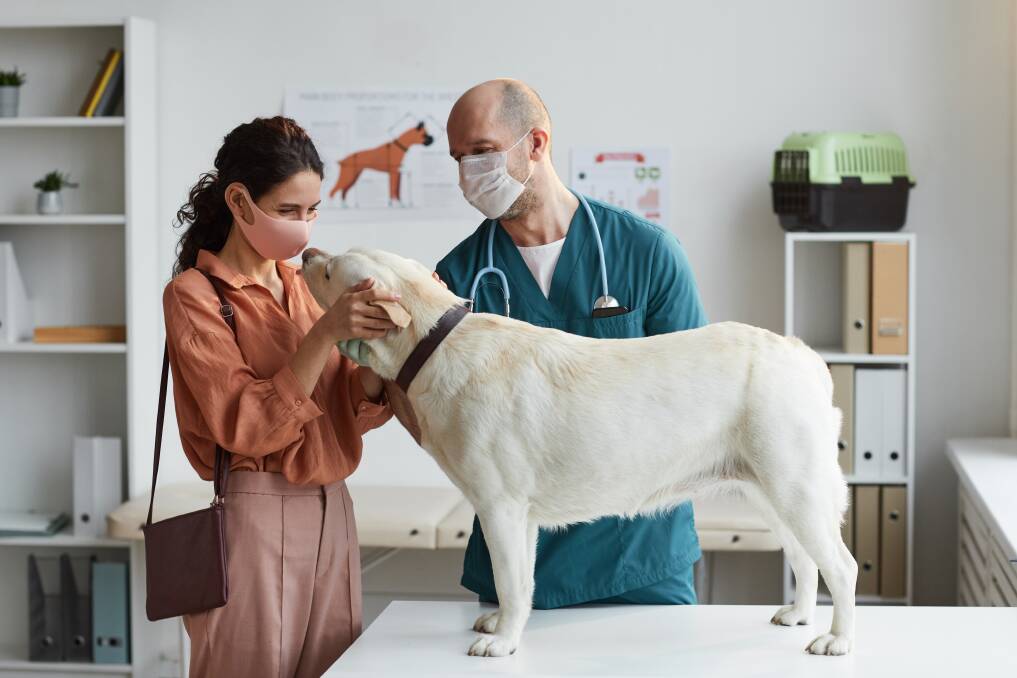
Over the summer, the Omicron variant of COVID-19 has wreaked havoc with services around Australia, including the veterinary sector.
Subscribe now for unlimited access.
or signup to continue reading
Like other businesses, veterinary practices have been hit hard with Omicron-associated absenteeism, leading to staff shortages, longer waiting times for appointments and in some cases, the need to reschedule appointments and procedures.
As for many other sectors, like hospitality and tourism, summer is one of the busiest periods for veterinarians.
It is a time when many companion animals are more active and involved in holiday activities.
During the warmer months, animals are more likely to experience certain types of misadventure, for example, tick paralysis, snake bite, cat fights and cuts and abrasions.
Summer is also the time that (traditionally), many people are on annual leave and attend to their animals' routine care.
Another factor increasing demand for veterinary services is the rise in the number of pets overall, due to what has been dubbed the pandemic pet boom.
As emergency veterinary centres have also been hit by staff shortages, general practice clinics are seeing more emergency cases on top of routine appointments.
This can increase waiting times.
Like other businesses, veterinary practices have been hit hard ...
In some cases, both veterinary GP and emergency clinics have had to temporarily close due to staff shortages.
Some clients are understandably frustrated and, occasionally, take out their frustrations on veterinary team members, often receptionists and nurses, who are doing their best to ensure all animals are seen in a timely manner.
Fortunately, the majority of clients we work with have been patient and understanding.
Many are suffering staff shortages in their own workplaces, and appreciate the additional workload this means for employees who are able to attend.
As a veterinary team member, I am grateful to those clients who have postponed or rescheduled non-urgent appointments if they are experiencing symptoms that may be associated with COVID.
Like staff who are taking sick leave, these individuals are playing an important role by helping to reduce the spread of the virus.
As was one memorable client who wore a custom-made mask featuring a photo of both of her cocker spaniels.
There are some ways you can help your veterinary team:
- Make an appointment in advance, and let the team know what the appointment is for so they can allocate an appropriate amount of time.
- In the case of emergency, if you are able to, phone ahead.
- Be prepared to wait. Even if you have made an appointment, clinics may need to prioritise some patients for emergency treatment. If your pet is anxious, let the veterinary team know.
- Practice policies may require additional precautions, for example non-contact or kerbside consultations, requesting those who enter the premises wear a mask and/or requesting to see proof of vaccination as a condition of entry. Ask ahead if you are not sure.
- Order prescription medications and food at least one week in advance, more if possible. Supply chains may be disrupted due to staff shortages, leading to delays.
- Restrict the number of people attending the appointment to the minimum. This helps facilitate social distancing.
- Bring a charged telephone so that the team can contact you if you need to wait outside.
- If you are experiencing symptoms of COVID but your animal needs to be seen, call your veterinary team to discuss.
Dr Anne Quain, BVSc (Hons), MANZCVS (Animal Welfare), Dip ECAWBM (AWSEL) is a lecturer at the Sydney School of Veterinary Science and a practising veterinarian.

